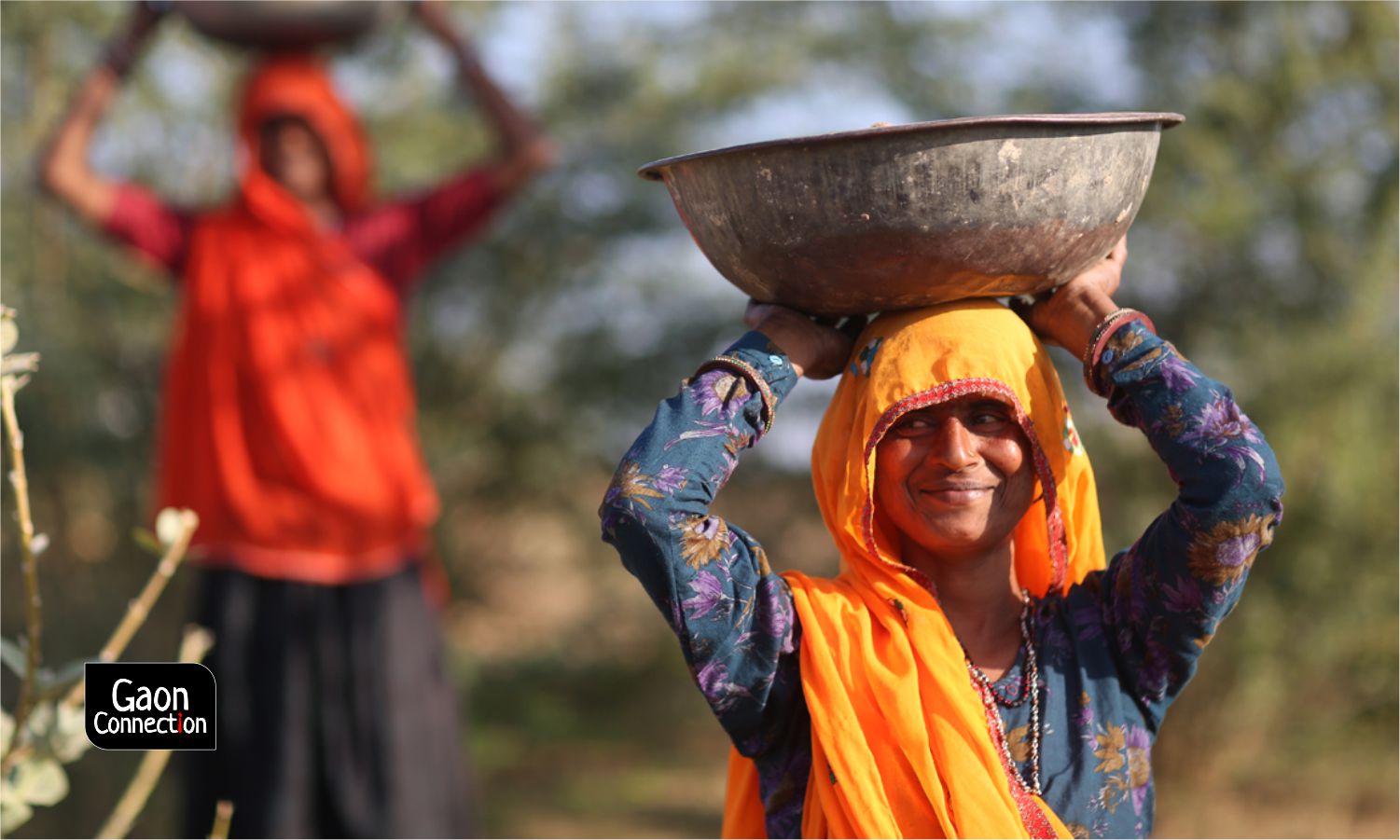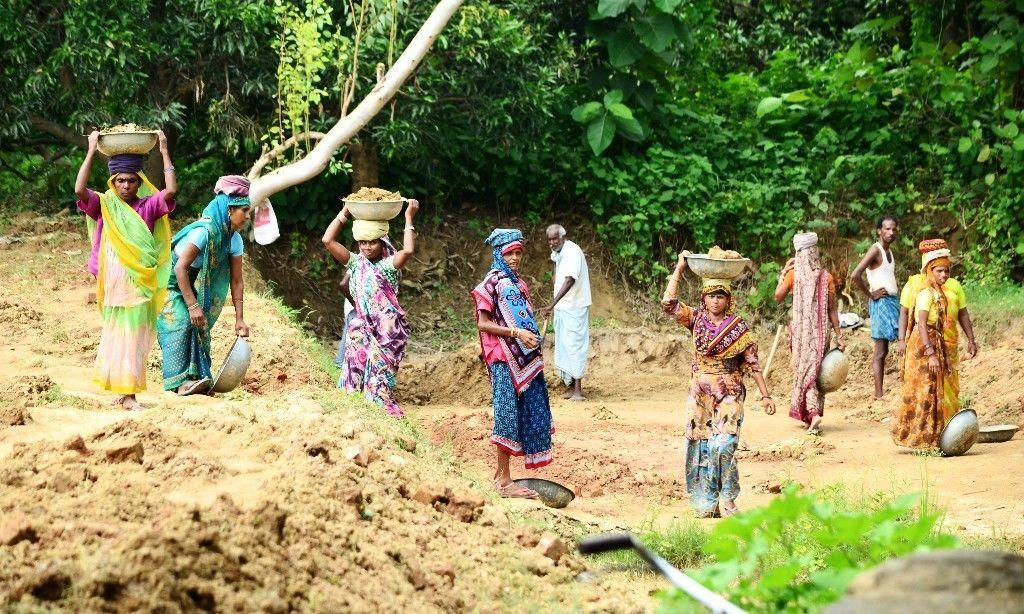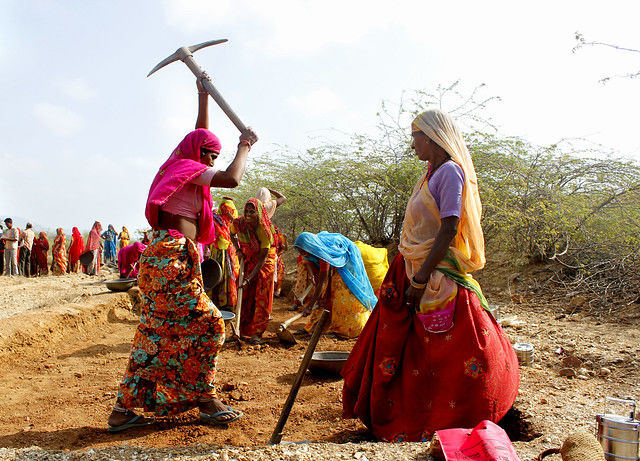Budget 2021: Despite growing demand for work, MGNREGA funds slashed by Rs 385 billion
For millions in rural India, MGNREGA remained the only source of livelihood during the COVID-19 lockdown. Experts wonder why funds for this scheme have been slashed from the last budget’s revised allocation of Rs 1,115 billion to Rs 730 billion. What would be the impact of such a budget cut?


Photo: UNDP India/flickr
The Mahatma Gandhi National Rural Employment Guarantee Act (MGNREGA) is the world’s largest scheme guaranteeing rural employment for 100 days a year. During the COVID-19 crisis, it was a beacon of hope, providing employment to multitudes, and there is still great demand for work. Despite this, in Budget 2021, the Centre has slashed the allocation for MGNREGA by Rs 385 billion, compared to last year’s revised budget estimates.
This, when owing to the demand for work, it was expected that the allocation for the scheme would be enhanced. The allocation for 2021-22 stands at Rs 730 billion, 34.5 per cent lesser than Budget 2020’s revised allocation of Rs 1,115 billion.
The unemployment rate during the COVID-19 pandemic leaped to 9.15 per cent in December last year from 6.06 per cent in January 2020. Following this, the Centre substantially revised MGNREGA allocation from Rs 615 billion to Rs 1,115 billion.
In fiscal 2019-20, the total expenditure under MGNREGA was Rs 716.87 billion. When compared to the total expenditure under the scheme in 2019-20, MGNREGA allocation in Budget 2021 marks a meagre increase of 1.8 per cent. A sum of Rs 600 billion was allocated for MGNREGA in 2019-20, and revised to Rs 710.02 billion. The expenditure was Rs 716.87 billion, Rs 6.85 billion more than the revised allocation.

In view of the COVID-19 crisis, in fiscal 2020-21, the Centre increased the MGNREGA budget by Rs 400 billion. The Union finance minister had then announced that MGNREGA would be able to generate three billion persondays of employment through the additional budget.
As per the MGNREGA website, 3.27 billion persondays of employment were created across the country till February 6, much above the target. These figures show the dependence on MGNREGA for employment.
A report in December last year of the People’s Action for Employment Guarantee (PAEG), a group created to track the official data of MGNREGA, indicated that 9.7 million rural households across the country could not get a single day’s work under MGNREGA despite seeking work. In addition, 4.56 million households applying for job cards under MGNREGA could not be provided with one, even while 71 per cent of the budget allocated for MGNREGA (Rs 745.63 billion) had already been spent by November 2020.
Experts working for the rights of MGNREGA workers are disappointed with the budget. “The centre has overlooked the prevailing rural employment crisis when there was a need to further enhance the budget under MGNREGA to provide employment opportunities,” Debmalya Nandi, who works in Jharkhand and is associated with the NREGA Sangharsh Morcha, told Gaon Connection.

“The pandemic, in fact, showcased the huge dependence of the country on MGNREGA for providing rural employment. With a budget of a mere Rs 730 billion, the government has made a net provision of 2.7 to 2.8 billion persondays for the next year, when the demand could touch 3.4 billion persondays by March. This will limit the scope of employment and also delay salaries,” Nandi added.
Meanwhile, experts associated with the rural economy have questioned the current allocation and have demanded doubling of funds.
Economist Rajendra Narayan of Azim Premji University, Bengaluru, who works with MGNREGA workers, told Gaon Connection: “The government needs to push this scheme forward and should not only allocate at least Rs 2,000 billion but also improve the minimum wages to match that of the agriculture sector. In addition, the employment guarantee should be increased to at least 150 days from 100 days. The reduction in budget allocation will worsen the crisis for vulnerable households.”

